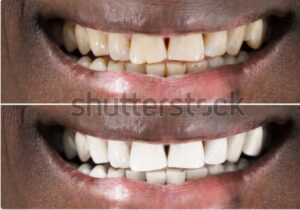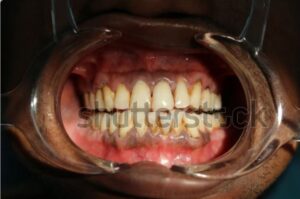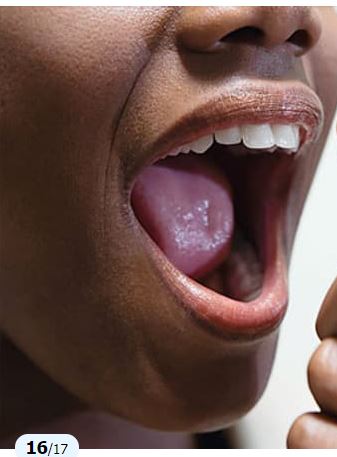Let’s discuss some basic oral hygiene; shall we? We know you know that the mouth is the main gate to the rest of the body. From the mouth the rest of the body gets nourishments and vitality. But, on the flip side, just as you know that lives and properties are not safe when the main gate is not properly secured, the rest of the body can also get into trouble when the mouth is not properly taking care of.
Did you know that the foods and drinks remnants in your mouth can combine with bacteria in the mouth to cause mild to life threatening infections?
Did you know that symptoms such as:
-Chronic bad breath.
-Facial / cheek swelling.
-Severe toothache
-Pain in the neck, jaw bone, or inner ear
-Sensitivity to hot or cold temperatures
-Fever
-Bitter taste in your mouth
-Sensitivity when chewing or biting
-Gums that are red or puffy
-Bleeding gums while brushing or flossing,
may all be signs of mouth infection that uncleaned food remnants in the mouth caused?
Did you also know that certain mouth infection have been associated with a number of diseases and conditions such as diabetes, heart disease, adverse pregnancy outcomes, Alzheimer’s disease and even depression.

Right there in the mouth, experts say there are uncountable number of bacteria, some of them come and go while others come, stay and colonize. Purnima Kumar, a professor of periodontology, says every time you drink a glass of water, you swallow millions of bacteria and every time you eat or kiss a partner, different bacteria come into your mouth.
These bacteria, according to experts, are both good and bad. Some of them aid digestion to nourish our health while some creates problems for our health. Common oral bacteria include:
-Streptococcus mutans,
-Porphyromonas gingivalis,
-Straphylococcus,
Lactobacillus
How Oral Hygiene affects the rest of the body
Infections in the mouth can travel to other parts of the body. “So, if pathogens overgrow in your mouth, they can transfer to your blood vessels and then onto distant parts of your body,” Kumar explains. Experts say inflammation from pathogens can damage the tiny blood vessels in the gums, thereby allowing oral bacteria to enter the bloodstream.
Even though the body’s antibody can fight the bacteria in the bloodstream, some harmful species of the bacteria have been associated with a number of diseases and conditions such as diabetes, heart disease, adverse pregnancy outcomes, Alzheimer’s disease and even depression as they reach various organs.
The American Academy of Periodontology says that other health problems happening in the body can influence oral health as well. People with diabetes, for example, are more likely to have periodontal disease than people without it.

The Main Gist
Now, here is the fact you must run with. All the uncleaned-up remnants from the starchy and sugary food including snacks, pizza, chocolate, ice-cream and drinks stuck in the mouth, would invariably combine with the bacteria in the mouth to metamorphose into what is called Dental Plaque, that soft, sticky film that builds up on the outside of the teeth and along the gum line.
The dental plaques, too, after sometime turn tarta, that hard yellow-brown substance on the teeth. Tarta is actually the genesis of all kinds of mouth infections including- Cavities, Gingivitis and periodontal (gum) disease, Severe gum infection (periodontitis), Tooth decay and loss, as well as Tooth infection (abscessed tooth).
Prevent Plaque & Tarta to Prevent Infections
The final word here is that, for you to prevent infections in the mouth, you must prevent plaque and tarta by:
- Floss daily: Floss once a day with dental floss or a water flosser to get rid of food and plaque stuck between teeth. Studies show that flossing before brushing teeth removes more plaque.
- Brush twice a day: Brush teeth for two minutes with a soft-bristled toothbrush and fluoride toothpaste for children; medium-bristled toothbrush and fluoride toothpaste for adults. Brush at least twice a day, and preferably after every meal. Avoid hard toothbrush.
- Chew sugarless gum: If you can’t brush soon after eating or drinking, chew sugar-free gum.
- Choose healthy foods: Cut back on sugary, starchy foods and drinks. Instead, choose nutritious foods and snacks such as plain yogurt, cheese, raw vegetables or fruit.
- See your dentist: Get dental check-ups at least twice a year.
- Use mouthwash: Rinse with an over-the-counter or prescription antiseptic mouthwash.
- Avoid Tooth picking habit
Source: Dare Agbeluyi, Chief Publisher.
Publisher’s Note:
- Leave your comments in the comments box below and share the post
- Send your health- related articles, stories, tips to compack2006@yahoo.co.ukfor free publication
- Like and share our Facebook page: @citizencomfortng



